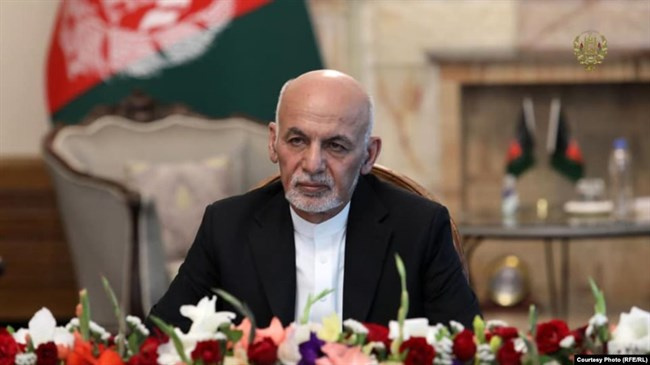Afghan president names council for peace deal with Taliban

Afghanistan’s president has appointed a council for national reconciliation, which will have final say on whether the government will sign a peace deal with the Taliban after what are expected to be protracted and uncertain negotiations with the militants.
The negotiations were envisaged under a US-Taliban peace agreement signed in February as intra-Afghan talks to decide the war-torn country’s future. However, their start has been hampered by a series of delays. Some had expected the negotiations to begin earlier this month, AP reported.
Afghan President Ashraf Ghani issued a decree late Saturday establishing the 46-member council, led by his former rival in last year’s presidential election, Abdullah Abdullah, who is now in the government.
The council is separate from a 21-member negotiating team, which Ghani appointed in March and which is expected to travel to the Persian Gulf state of Qatar, where the Taliban maintain a political office, for intra-Afghan talks.
The council will have the final say and will ultimately decide on the points that the negotiating team takes up with the Taliban.
Abdullah’s appointment to head the reconciliation efforts followed a power-sharing deal he signed in May with Ghani to end the political deadlock after last year’s election – a vote in which Abdullah had also declared himself a winner.
The High Council for National Reconciliation is made up of an array of Afghan political figures, including current and former officials, and nine women representatives, one of whom was named Abdullah’s deputy. Ghani also appointed former president Hamid Karzai to the council but his predecessor rejected the appointment in a statement Sunday, saying he declines to be part of any government structure.
However, the establishment of the council may not sit well with the Taliban, who have appointed just one 20-member negotiating team that has the authority to make final decisions. The Taliban team answers only to the militants’ leader, Mullah Hibatullah Akhunzada.
There are also other obstacles in the way of the negotiations. The Afghan government has reversed a decision to release the last 320 Taliban prisoners it is holding until the militants free more captured soldiers.
The US-Taliban deal called on the Taliban to free 1,000 government and military personnel they hold captive while the government was to free 5,000 Taliban prisoners, in an exchange meant as a goodwill gesture ahead of the intra-Afghan negotiations.
The government appears adamant to secure freedom for the soldiers. Javid Faisal, spokesman for the National Security Advisor’s office, tweeted there are no changes to the plan.
“The Taliban will have to release our commandos held by them before the government resumes the release of the remaining 320 Taliban prisoners,” he said.
The US-Taliban deal is aimed at ending America’s war in Afghanistan – a conflict that began shortly after the Sept. 11 attacks in 2001 under the banner of fighting “terrorism”. The invasion toppled the Taliban, but the group has never stopped its attacks and even regained insurgency.
US troops have already started leaving Afghanistan, and by November, fewer than 5,000 troops are expected to still be in the country. That’s down from nearly 13,000 when the US-Taliban agreement was signed Feb. 29.
Under the agreement, the withdrawal of US troops does not hinge on the success of intra-Afghan talks but on commitments made by the Taliban to combat terrorist groups and ensure Afghanistan is not used as a staging ground for attacks on the US and its allies.
Since signing the agreement, the Taliban have held to a promise not to attack US and NATO troops, but have carried out regular attacks on Afghan security forces. The government wants an immediate cease-fire, while the Taliban have said the terms should be agreed in the negotiations.
Attacks, however, have continued unabated, with civilians bearing the brunt of the violence.
On Friday, roadside bombs struck vehicles carrying civilians in separate attacks in southern Afghanistan, killing 14 people, including three children. No one has so far claimed responsibility for those bombings.
Source: Iran Daily

